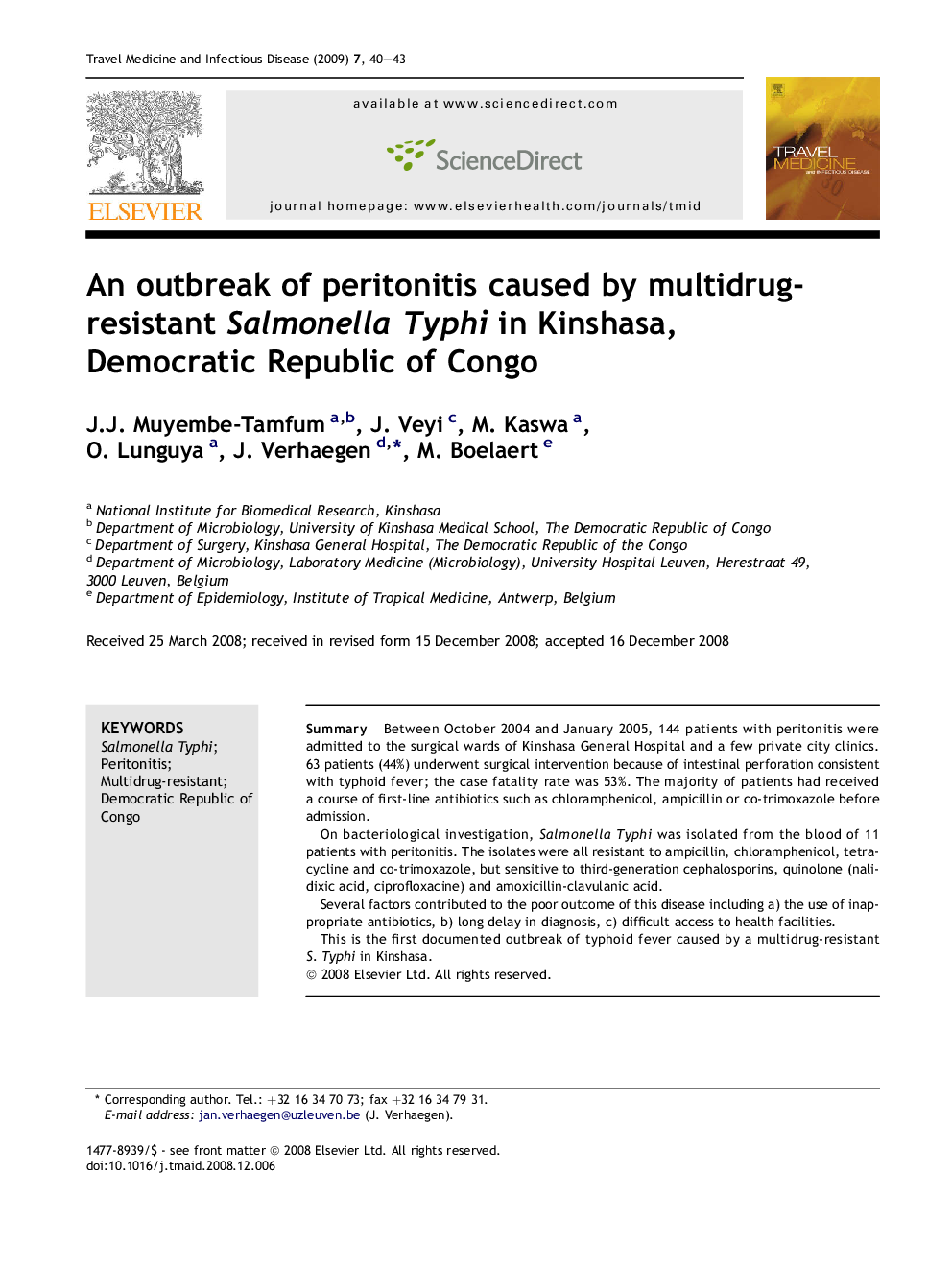| Article ID | Journal | Published Year | Pages | File Type |
|---|---|---|---|---|
| 3393507 | Travel Medicine and Infectious Disease | 2009 | 4 Pages |
SummaryBetween October 2004 and January 2005, 144 patients with peritonitis were admitted to the surgical wards of Kinshasa General Hospital and a few private city clinics. 63 patients (44%) underwent surgical intervention because of intestinal perforation consistent with typhoid fever; the case fatality rate was 53%. The majority of patients had received a course of first-line antibiotics such as chloramphenicol, ampicillin or co-trimoxazole before admission.On bacteriological investigation, Salmonella Typhi was isolated from the blood of 11 patients with peritonitis. The isolates were all resistant to ampicillin, chloramphenicol, tetracycline and co-trimoxazole, but sensitive to third-generation cephalosporins, quinolone (nalidixic acid, ciprofloxacine) and amoxicillin-clavulanic acid.Several factors contributed to the poor outcome of this disease including a) the use of inappropriate antibiotics, b) long delay in diagnosis, c) difficult access to health facilities.This is the first documented outbreak of typhoid fever caused by a multidrug-resistant S. Typhi in Kinshasa.
